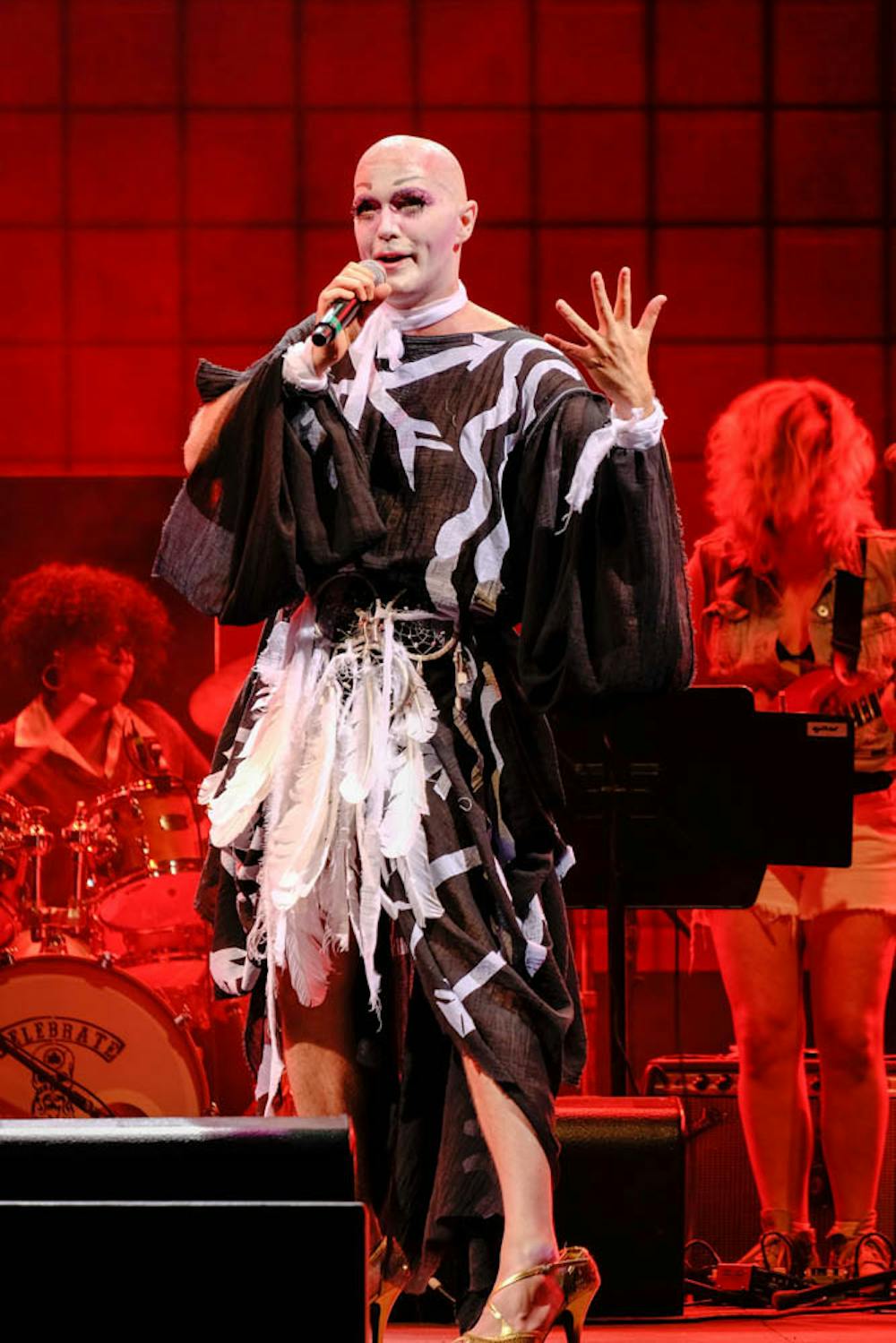Before Taylor Mac’s artist-in-residence lecture began at the Granoff Center for the Creative Arts Thursday, photos from the artist’s storied career in theater flashed on a large screen above the podium. They showed bewildered audience members watching Mac dressed in extravagant drag, flanked by dancers decked out in glittering tulle.
But when it was time for Mac to take the stage, judy (judy is Mac’s gender pronoun) strode to the podium in a simple maroon sport coat and plaid pants, an outfit judy calls “man drag.”
Mac, a performance artist, actor, and playwright who has received a MacArthur “Genius” Grant and was a finalist for a Pulitzer Prize in drama in 2017, opened judy’s talk by stating exactly what judy was going to do: “talk about the state of the world, girl.”
Judy spent much of the talk referring back to a central question: “What’s gonna happen?”
“No matter how many times you’ve gone on stage, there are nerves. So, you say to steel the nerves and lighten the mood, ‘what’s gonna happen?’” judy said. “You get to share the fear, celebrate it even — it’s a little witchy spell.”
Mac compared the biggest “what’s gonna happen?” moment of judy’s art life — the opening of judy’s 24-hour show on Broadway in fall 2016 — to the intense “what’s gonna happen?” political moment the entire country experienced during the final months of the 2016 presidential election. Mac spent many years creating “A 24-Decade History of Popular Music” — the Broadway show — in which judy spends an hour performing songs from each of the 24 decades of U.S. history.
Mac had been performing parts of the piece for years in two-, three- and 12-hour sections, and judy garnered loyal fans who made a habit of attending Mac’s performances after they met close friends or even their spouses during the intensely interactive show. Mac often asks audiences to slow dance with someone of their same gender, play beer pong or row a boat across an imaginary Atlantic Ocean in an attempt to create community.
All of these elements came together to achieve Mac’s vision of “falling apart … The work, when put together in its entirety, is about how communities build themselves as a result of being torn apart,” judy said.
Mac wants an element of disaster in every show, because when something goes wrong it can turn into the performance’s most memorable moment. Calamity, judy says, is often “the art in the room.” During the Broadway show, an accidental spillage of dry ice created the element of surprise which Mac seeks in order to inspire feeling.
Mac has high hopes for the future of theatre, including a creative world with no auditions, no above-title credits and no more theaters named for wealthy donors.
“We’ll acknowledge the calamity without feeding it,” judy said. “We will instead transform calamity into communion, we’ll make a ritual of wonderment about what’s gonna happen.”
Audience member Caroline Sprague ’20.5 felt inspired by Mac’s message.
“There aren’t a lot of people who are speaking right now in ways that make me feel inspired and ready to work,” she said. “This was the first thing I’ve seen in a long time that made me feel energized again.”
Rhode Island Council for the Humanities Executive Director Elizabeth Francis called Mac’s talk a “manifesto for what could be, for how we could break down power structures and recreate community.”
Mac’s residency at the University will continue with a lecture Friday by Mac’s costume designer Machine Dazzle, a performance Saturday at the Veterans Memorial Auditorium downtown and a panel discussion Sunday.





